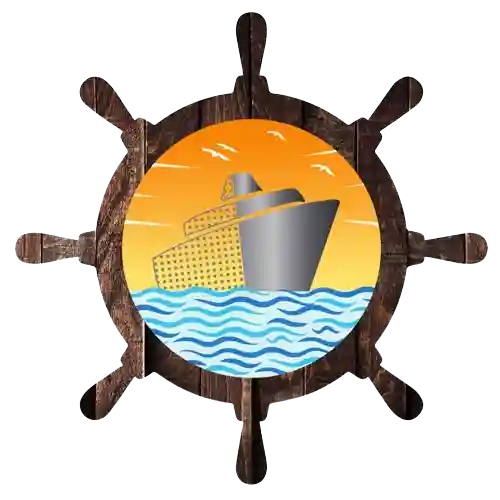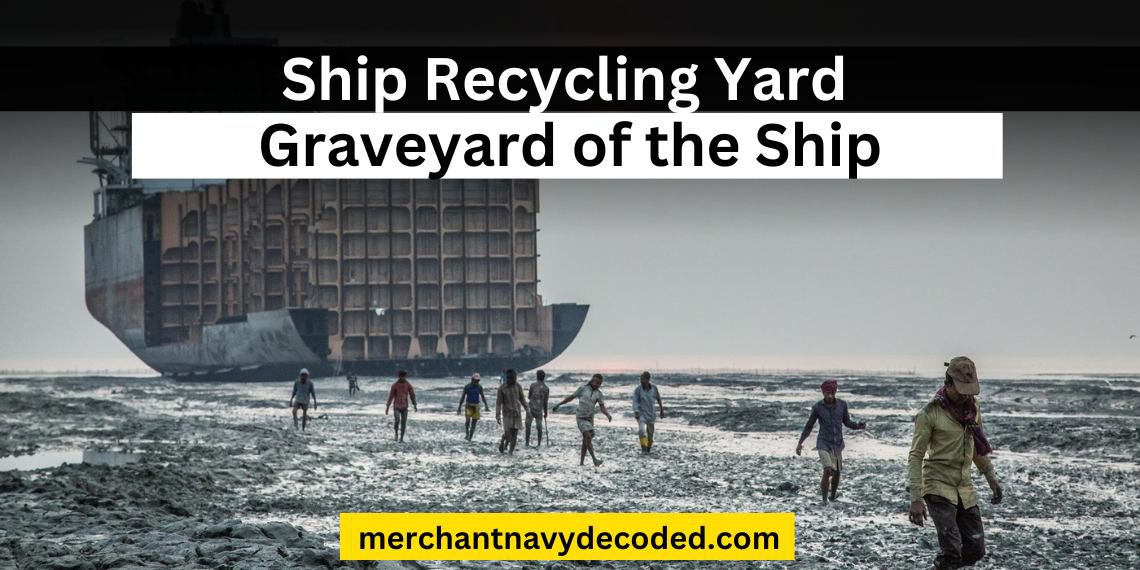Ship Recycling |Where Does a Ship Die?|
What is Ship Recycling?
Ship recycling is a method to take apart ships that have reached the end of their working lives. This process involves carefully breaking down or dismantling the vessel, and it’s done to recover valuable materials from inside the ship. These materials can then be reused to create new and valuable products.
Imagine a boat as a big container made up of various parts and materials like steel, machinery, and even furniture. When a ship becomes old or is no longer safe to operate, instead of just letting it go to waste, ship recycling comes into play.
What is the need for Ship Recycling?
- Age of Shipping Fleet: The world’s ships have an average age of about 20 years, which can lead to increased maintenance costs and decreased efficiency as they age.
- Cost Avoidance: Dismantling old ships is necessary to avoid the high expenses of maintaining and repairing ageing vessels.
- Valuable Materials: Ships at the end of their operational life contain significant quantities of valuable materials like steel, machinery, and equipment.
- Recycling Potential: Recycling these materials contributes to sustainability by repurposing them into new products instead of relying solely on newly extracted resources.
- Annual Scrapping: More than 600 ships are scrapped each year globally, highlighting the demand for ship recycling as a widespread practice.
The ship recycling process takes around 4-6 months for a single vessel, involving careful deconstruction and separation of materials for effective recycling.
World Ship Recycling Industry
In the world of ship recycling, numerous facilities are spread across various regions, offering options for ship owners to dismantle their retired vessels. However, a distinctive trend has emerged where many ship owners choose to bring their ships to specific locations in South Asia, notably the beaches of Chittagong in Bangladesh, Alang in India, and Gadani in Pakistan.
Economic Considerations and Geographic Preference
- High Scrap Value
- Ship owners favor these South Asian locations due to their economic advantage. In countries like Bangladesh, India, and Pakistan, ship owners can receive around ₹33,000 per tonne of scrap when dismantling their ships.
- This contrasts significantly with the compensation offered by more advanced and safer recycling facilities in Europe, where ship owners might receive only around ₹12,000 per tonne.
- Cost-effective (Cheap) Labor
- Ship recycling in South Asia is also favoured due to cost-effective labour availability.
- Skilled workers in these regions can manage the intricate process of dismantling ships at lower wages compared to labour costs in more advanced economies, further contributing to the economic attractiveness of these locations.
- Safety Regulations
- One of the key reasons ship owners opt for South Asian facilities is the relatively less stringent safety regulations compared to those in Europe. While Europe emphasizes safety and environmental standards during the recycling process, these regulations can often translate into higher operational costs.
Dangers in Ship Recycling
Ship recycling is considered one of the most perilous jobs worldwide, according to the International Labour Organization (ILO). Workers involved in ship breaking face a range of dangers that stem from the nature of the work itself.
Lack of Protection
- The most immediate threat to workers is the potential for ship parts to fall on them during the dismantling process. This can lead to severe injuries or even fatalities.
- Compounding this issue is the fact that many workers often lack proper Personal Protective Equipment (PPE) kits, leaving them vulnerable to these hazards.
Human Cost and Environmental Impact
- The toll of these risks is significant. Since 2009, there have been approximately 440 reported deaths in South Asian ship recycling yards.
- Beyond the human cost, the environmental impact is concerning. Toxic materials, such as waste oil, heavy metals, and asbestos, are often found within ships and can be released into the environment during dismantling.
Health Hazards
- Moreover, workers are at high risk of developing fatal diseases due to insufficient respiratory equipment.
- Toxic fumes released during the cutting and cleaning operations can cause serious health issues. The lack of protective measures in this regard exposes workers to long-term health consequences.
Need for Safety Measures
To address these pressing safety concerns, it is imperative for ship recycling facilities to prioritize worker safety by implementing stringent safety protocols, providing adequate training, and ensuring the use of appropriate protective gear. Safeguarding the lives of workers and minimizing environmental harm should be paramount in the ship recycling industry’s pursuit of sustainability and responsible practices.
Environmental Impact of Ship Recycling
- Pollution and Irreparable Damage
Ship recycling, while economically beneficial, takes a significant toll on the environment. Oil spills, sludge, and debris containing heavy metals pose grave threats to coastal ecosystems. These pollutants can result in lasting harm that is often irreversible, impacting marine life and habitats.
- Coastal Devastation
The aftermath of ship recycling operations can lead to dire consequences along coastlines. Oil spills, for instance, can coat beaches and harm marine creatures. Sludge, a byproduct of the process, further adds to the pollution burden. Additionally, debris contaminated with heavy metals, including toxic substances like lead and mercury, adds to the environmental challenge.
- Serious Implications
The cumulative effect of these pollutants can have severe implications for the environment if not carefully managed. Coastal ecosystems, crucial for maintaining biodiversity and providing livelihoods, are particularly vulnerable. The contamination disrupts delicate balances and can lead to cascading ecological disruptions.
Bangladesh’s Mangrove Loss
In Bangladesh, the urgency of ship recycling has led to concerning actions. Over the past few years, more than 60,000 mangrove trees have been felled along the coast near the city of Chattogram to create space for additional ships. This not only impacts these unique ecosystems but also has wider consequences on climate regulation and protection against natural disasters.
The Hong Kong Convention
- The Hong Kong Convention, established to ensure the safe recycling of ships at the end of their operational lives, represents a global effort to mitigate risks to both human health and the environment.
- Initially adopted in 2009 during a diplomatic conference held in Hong Kong, China, the convention has not yet been fully enforced due to a range of challenges.
- One key obstacle is the lack of consensus among major shipping nations regarding its adoption. This hesitation, coupled with opposition from countries heavily engaged in ship recycling, who argue that the convention would impose undue financial burdens and regulations, has contributed to its delayed implementation.
- Furthermore, the process is complicated by the task of aligning existing ship recycling practices with the stringent standards set forth by the convention. Striking a balance between the imperative of enhancing safety measures and the concerns of the industry is a complex task.
Are you interested in knowing the life at sea? Click here
Disclaimer :- The opinions expressed in this article belong solely to the author and may not necessarily reflect those of Merchant Navy Decoded. We cannot guarantee the accuracy of the information provided and disclaim any responsibility for it. Data and visuals used are sourced from publicly available information and may not be authenticated by any regulatory body. Reviews and comments appearing on our blogs represent the opinions of individuals and do not necessarily reflect the views of Merchant Navy Decoded. We are not responsible for any loss or damage resulting from reliance on these reviews or comments.
Reproduction, copying, sharing, or use of the article or images in any form is strictly prohibited without prior permission from both the author and Merchant Navy Decoded.



one of the finest content over the internet regarding ship recycling
Danger, which is mentioned is real i have experienced with my family member he is suffering from lung issue
👍👍easy to understand